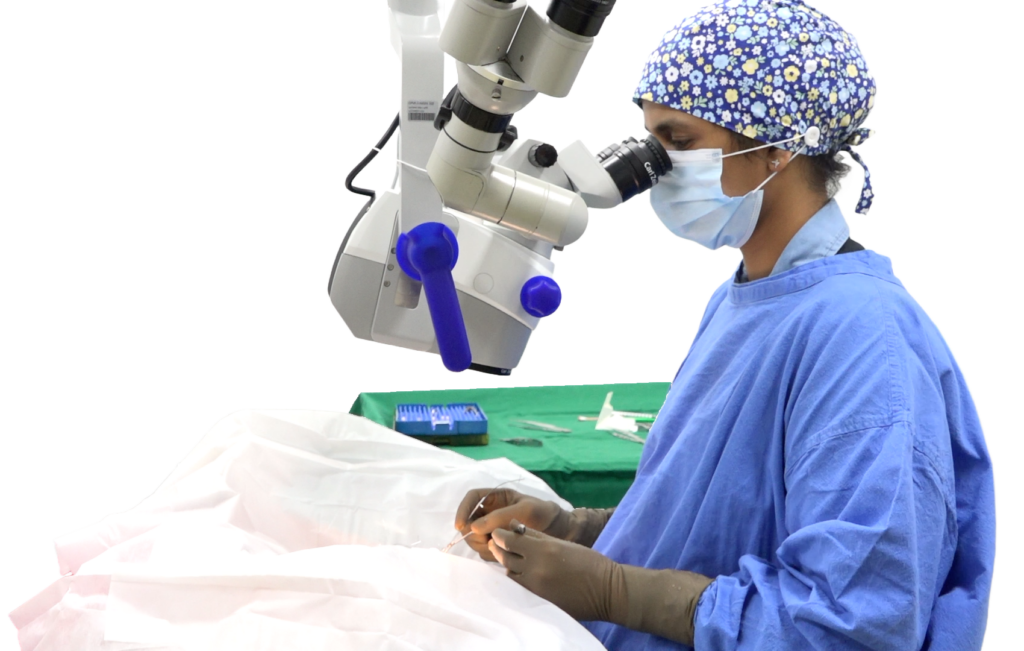
Residency
The IBVO Residency Program is a pioneering initiative aimed at developing veterinary ophthalmologists with advanced expertise in medical and surgical ophthalmology. The program focuses on providing high-quality ophthalmic care in emerging markets, where specialized veterinary services are often limited.
Structured Residency Program
The IBVO Residency Program is a comprehensive, three-year full-time initiative designed to train veterinary professionals to become specialists in ophthalmology. The program integrates various elements detailed below. This holistic approach ensures that residents are well-prepared to handle complex ophthalmic cases in various species, including companion animals, horses, and exotic animals.
Didactic Education
Residents undergo a structured curriculum covering both foundational and advanced topics in veterinary ophthalmology. The coursework includes lectures, online sessions, and interactive Q&A with international experts.
Clinical Rotations
Residents gain hands-on experience by rotating through accredited veterinary ophthalmology clinics, ensuring exposure to a diverse range of cases.
Surgical Training
A phased approach to surgical training helps residents develop skills through cadaver practice, assisted surgeries, and eventually independent procedures under supervision.
Case Rounds
Residents participate in daily case rounds, engaging in deep-dive discussions on complex cases and exploring advanced diagnostic and treatment approaches under expert guidance.
Journal Club
Residents participate in journal club meetings, engaging in critical discussions on the latest research, case studies, and emerging trends in veterinary ophthalmology with peers and experts.
Mentorship
Each resident receives extensive in-person and virtual mentorship throughout the program. Mentorship is provided by IBVO diplomates and world-renowned international faculty, ensuring continuous feedback, expert guidance, and a dynamic learning experience.
Didactic Training Program
The IBVO Structured Residency Program includes an extensive 250-hour Didactic Training Program, featuring lectures followed by quizzes, tests, and structured assessments. Residents study core ophthalmology texts, including Slatter’s Fundamentals of Veterinary Ophthalmology and Gelatt’s Veterinary Ophthalmology, ensuring a comprehensive and rigorous academic foundation.
Phase 1: Fundamentals of Veterinary Ophthalmology
Functional Morphology
Understanding the anatomical structure and function of ocular components.
Ocular Cytology & Pathology
Diagnostic techniques and analysis of ocular cells and tissues.
Ophthalmic Pharmacology
Key drugs used in ophthalmology, their mechanisms, and applications.
Basic Examination Techniques
Complete ophthalmic examination by a general practictioner
Diseases
Diseases of ocular and periocular structures
Phase 2: Advanced Didactic Program
Foundational Sciences I & II
In-depth study of neuroanatomy, embryology, genetics, and immunology relevant to ophthalmology.
Examination Techniques and Optics
Covering advanced diagnostic techniques, such as retinoscopy, gonioscopy, and ophthalmoscopy.
Adnexa and Principles of Microsurgery
Focused on eyelid diseases, lacrimal system disorders, and surgical principles.
Lens
Comprehensive understanding of lens physiology, cataract formation, and advanced surgical techniques like phacoemulsification
Orbit & Globe
Addressing orbital diseases, trauma management, and reconstructive surgeries.
Cornea & Sclera
Detailed exploration of corneal diseases, surgical interventions, and corneal transplantation techniques.
Uvea
Covering inflammatory conditions, infectious agents, and uveal surgery.
Glaucoma
Diagnosis, medical management, and surgical approaches, including laser therapy.
Posterior Segment Disorders
Retinal diseases, vitreoretinal surgery, and ocular imaging techniques.
Lab Animal, Exotic, and Equine Ophthalmology
Specialized modules focusing on ophthalmic care for non-traditional species.
Certification Process for Residents
The final step of the residency program, certification evaluates knowledge, clinical competence, and surgical skills. Successful candidates earn IBVO Diplomate Status, enhancing credibility, career opportunities, and global recognition. The certification process includes:
Written Exam
A comprehensive exam covering foundational and advanced topics in veterinary ophthalmology.
Image Recognition Test
Residents are evaluated on their ability to interpret clinical images accurately and provide appropriate case management.
Surgical Practical Exam
Residents perform specific ophthalmic surgeries under the observation of a panel of experts.
Accredited Organizations Implementing IBVO Residency Training Program
Since 2022, the International Board of Veterinary Ophthalmology (IBVO) has piloted a structured Residency Training Program (RTP) at The Eye Vet (TEV) clinics throughout India. The first cohort set for IBVO Certification in Q2 2025.
